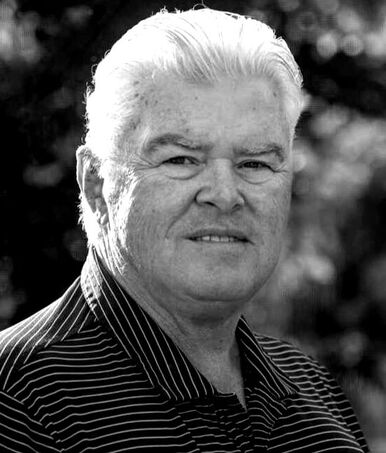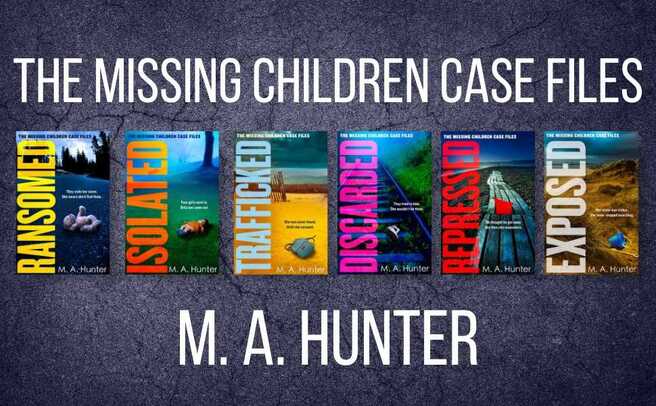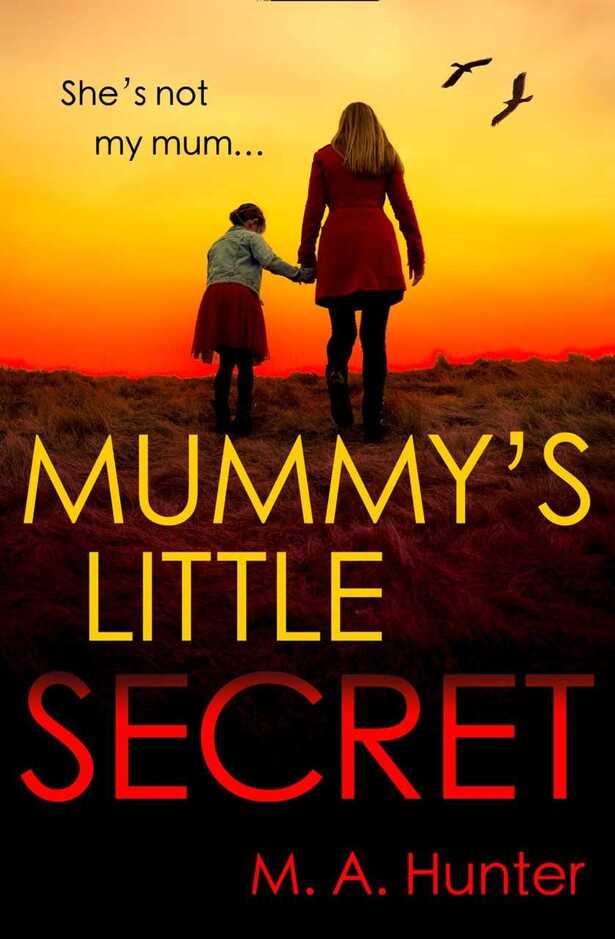
It gives me great pleasure to welcome Stephen Edger aka M. A. Hunter onto the website today. Stephen is the bestselling author of a string of psychological and crime novels. In fact, he's up to his 27th as we speak.
Alex: Tell us a bit about yourself, Stephen.
Stephen: I'm a married father of two, who began writing seriously in 2010, having always had the urge to try and write a book. I loved the creative process so much that I did it again. And again. And again. Now, 11 years on, my 27th book is set to be published in August 2021. I was born in the North-east of England, but grew up in London, and have lived in Southampton since moving here for university. Although I consider myself a northerner at heart, there's no trace in my accent. I love reading, writing (obviously), and football. I'm also a bit of a move aficionado (i.e. I know a lot of useless information about films)
Alex: How would you describe your writing, and are there particular themes that you like to explore?
Stephen: I write fiction which will probably never win any awards, but will keep most readers hooked to the page. I write in the genres of crime, thrillers, and suspense. I like to write what I like to read: high-octane, twisting, stories that explore the darker aspects of the human psyche. If it scares me, then it will probably end up in one of my stories.
Alex: Tell us a bit about yourself, Stephen.
Stephen: I'm a married father of two, who began writing seriously in 2010, having always had the urge to try and write a book. I loved the creative process so much that I did it again. And again. And again. Now, 11 years on, my 27th book is set to be published in August 2021. I was born in the North-east of England, but grew up in London, and have lived in Southampton since moving here for university. Although I consider myself a northerner at heart, there's no trace in my accent. I love reading, writing (obviously), and football. I'm also a bit of a move aficionado (i.e. I know a lot of useless information about films)
Alex: How would you describe your writing, and are there particular themes that you like to explore?
Stephen: I write fiction which will probably never win any awards, but will keep most readers hooked to the page. I write in the genres of crime, thrillers, and suspense. I like to write what I like to read: high-octane, twisting, stories that explore the darker aspects of the human psyche. If it scares me, then it will probably end up in one of my stories.

Alex: Are you a writer that plans a detailed synopsis or do you set out with a vague idea and let the story unfold as you write?
Stephen: I always find the 'pantser vs. plotter' question a tough one as I'm a little of both. When a new idea strikes, I like to plot a few chapters, and usually have a very vague idea about where the story will go / climax. However, I like the creative freedom to be able to throw in last minute twists, which often takes the stories in a different direction to the original plan. I try to plot 5-10 chapters at a time to keep some control over where the story is going, but each plotted chapter is no more than a couple of bullet points, and then I allow creativity to take over. For my most recent series (The Missing Children Case Files), I knew the series would be 6 stories long, and whilst can be read as standalone stories, there is an overarching story arc (the main character's sister has been missing for 20 years) that ties them all together. From the first book I knew roughly where each story would take my main protagonist towards exposing the truth about her sister.
Alex: Tell us about your latest novel.
Stephen: Mummy's Little Secret (published by HarperCollins' One More Chapter on 05 August) is a nerve-shredding new psychological thriller.
When Jess meets five-year-old Daisy and her mum, Morag, in a local London park, they seem a perfectly happy and loving pair. Until Daisy whispers four little words that send ice seeping down Jess’s spine: "She’s not my mum." Determined to save Daisy, Jess becomes obsessed with unearthing Morag’s secrets. As she digs ever deeper, her friends and family start to question her own increasingly paranoid behaviour… But Jess knows what she heard and she’s certain the fear in Daisy’s eyes was real. Of course she isn’t imagining things… Or is she?
Stephen: I always find the 'pantser vs. plotter' question a tough one as I'm a little of both. When a new idea strikes, I like to plot a few chapters, and usually have a very vague idea about where the story will go / climax. However, I like the creative freedom to be able to throw in last minute twists, which often takes the stories in a different direction to the original plan. I try to plot 5-10 chapters at a time to keep some control over where the story is going, but each plotted chapter is no more than a couple of bullet points, and then I allow creativity to take over. For my most recent series (The Missing Children Case Files), I knew the series would be 6 stories long, and whilst can be read as standalone stories, there is an overarching story arc (the main character's sister has been missing for 20 years) that ties them all together. From the first book I knew roughly where each story would take my main protagonist towards exposing the truth about her sister.
Alex: Tell us about your latest novel.
Stephen: Mummy's Little Secret (published by HarperCollins' One More Chapter on 05 August) is a nerve-shredding new psychological thriller.
When Jess meets five-year-old Daisy and her mum, Morag, in a local London park, they seem a perfectly happy and loving pair. Until Daisy whispers four little words that send ice seeping down Jess’s spine: "She’s not my mum." Determined to save Daisy, Jess becomes obsessed with unearthing Morag’s secrets. As she digs ever deeper, her friends and family start to question her own increasingly paranoid behaviour… But Jess knows what she heard and she’s certain the fear in Daisy’s eyes was real. Of course she isn’t imagining things… Or is she?

Alex: What was the first book you read?
Stephen: What... ever? No idea LOL. I read a lot as a child, and spent most Saturdays at the library. I remember becoming hooked on the Point Horror series as a teenager, and then became a huge John Grisham fan thereafter. But it was Simon Kernick's Relentless that got me into the thriller genre, and was the book that convinced me I should try and write my own story.
Alex: How much research do you do and what does it usually entail?
Stephen: It varies from story to story to be honest. A lot of the time, I'll write a plot point based on imagination, and then retrospectively check whether it's possible / genuine, which tends to lead to further researching and plot development. Most of my stories are set in places I've actually visited, which usually helps fill in a lot of background detail. Thinking about it now, I probably do far more research than I realise, but I don't tend to think of it as such.
Alex: Do you ever base your characters on people you have encountered in real life?
Stephen: No, but that's because I'm very un-observant. I suppose on some subconscious level all characters are based on real people's traits, or at least an amalgamation of personalities. Let's put it this way: I've never knowingly based a character on a real person.
Alex: Which was the last book you read that blew you away?
Stephen: I've just finished an advanced copy of Lauren North's Safe At Home, which I couldn't put down, and highly recommend.
Alex: How do you market your books?
Stephen: Is "badly" an acceptable answer? I'm terrible about publicising my books and shouting about them, which probably explains why I don't sell as many books as I'd like (and why Netflix Execs have yet to pick up the phone to me). I promote my books on my website (stephenedger.com) and via social media (facebook.com/AuthorStephenEdger) and that's about it.
Alex: "Badly" is the answer most authors give on these pages, so I shouldn't feel too bad about it, Stephen. What are your interests aside from writing? And what do you do to unwind?
Stephen: When I'm not writing, I'm either doing my day job (Risk Manager for an Insurance company) or spending it with my wife and children. To unwind, I'm partial to a glass of wine, the latest Netflix series, or a good book. I also watch football, but as an Arsenal fan this is neither relaxing nor enjoyable.
Alex: Which authors do you particularly admire and why?
Stephen: I love Simon Kernick because not only is he a great writer of high-octane thrillers, but he took the time to answer my questions when I was first trying to find my feet as a writer. I'm a huge fan of the writers CL Taylor and Sarah Pinborough who always write books that grip me from page-1. There are also writers like Louise Beech, Vicki Patis, and Tracy Buchanan (to name a few) who always give so much back to other authors, offering encouraging words and support.
Alex: Thank you so much for sharing this with us Stephen. It's been fascinating to hear your own inimitable take on this mysterious business of creating fictitious worlds on the page. And best of luck with your latest book.
Stephen: My pleasure, Alex. And thanks for having me on.
Stephen: What... ever? No idea LOL. I read a lot as a child, and spent most Saturdays at the library. I remember becoming hooked on the Point Horror series as a teenager, and then became a huge John Grisham fan thereafter. But it was Simon Kernick's Relentless that got me into the thriller genre, and was the book that convinced me I should try and write my own story.
Alex: How much research do you do and what does it usually entail?
Stephen: It varies from story to story to be honest. A lot of the time, I'll write a plot point based on imagination, and then retrospectively check whether it's possible / genuine, which tends to lead to further researching and plot development. Most of my stories are set in places I've actually visited, which usually helps fill in a lot of background detail. Thinking about it now, I probably do far more research than I realise, but I don't tend to think of it as such.
Alex: Do you ever base your characters on people you have encountered in real life?
Stephen: No, but that's because I'm very un-observant. I suppose on some subconscious level all characters are based on real people's traits, or at least an amalgamation of personalities. Let's put it this way: I've never knowingly based a character on a real person.
Alex: Which was the last book you read that blew you away?
Stephen: I've just finished an advanced copy of Lauren North's Safe At Home, which I couldn't put down, and highly recommend.
Alex: How do you market your books?
Stephen: Is "badly" an acceptable answer? I'm terrible about publicising my books and shouting about them, which probably explains why I don't sell as many books as I'd like (and why Netflix Execs have yet to pick up the phone to me). I promote my books on my website (stephenedger.com) and via social media (facebook.com/AuthorStephenEdger) and that's about it.
Alex: "Badly" is the answer most authors give on these pages, so I shouldn't feel too bad about it, Stephen. What are your interests aside from writing? And what do you do to unwind?
Stephen: When I'm not writing, I'm either doing my day job (Risk Manager for an Insurance company) or spending it with my wife and children. To unwind, I'm partial to a glass of wine, the latest Netflix series, or a good book. I also watch football, but as an Arsenal fan this is neither relaxing nor enjoyable.
Alex: Which authors do you particularly admire and why?
Stephen: I love Simon Kernick because not only is he a great writer of high-octane thrillers, but he took the time to answer my questions when I was first trying to find my feet as a writer. I'm a huge fan of the writers CL Taylor and Sarah Pinborough who always write books that grip me from page-1. There are also writers like Louise Beech, Vicki Patis, and Tracy Buchanan (to name a few) who always give so much back to other authors, offering encouraging words and support.
Alex: Thank you so much for sharing this with us Stephen. It's been fascinating to hear your own inimitable take on this mysterious business of creating fictitious worlds on the page. And best of luck with your latest book.
Stephen: My pleasure, Alex. And thanks for having me on.
